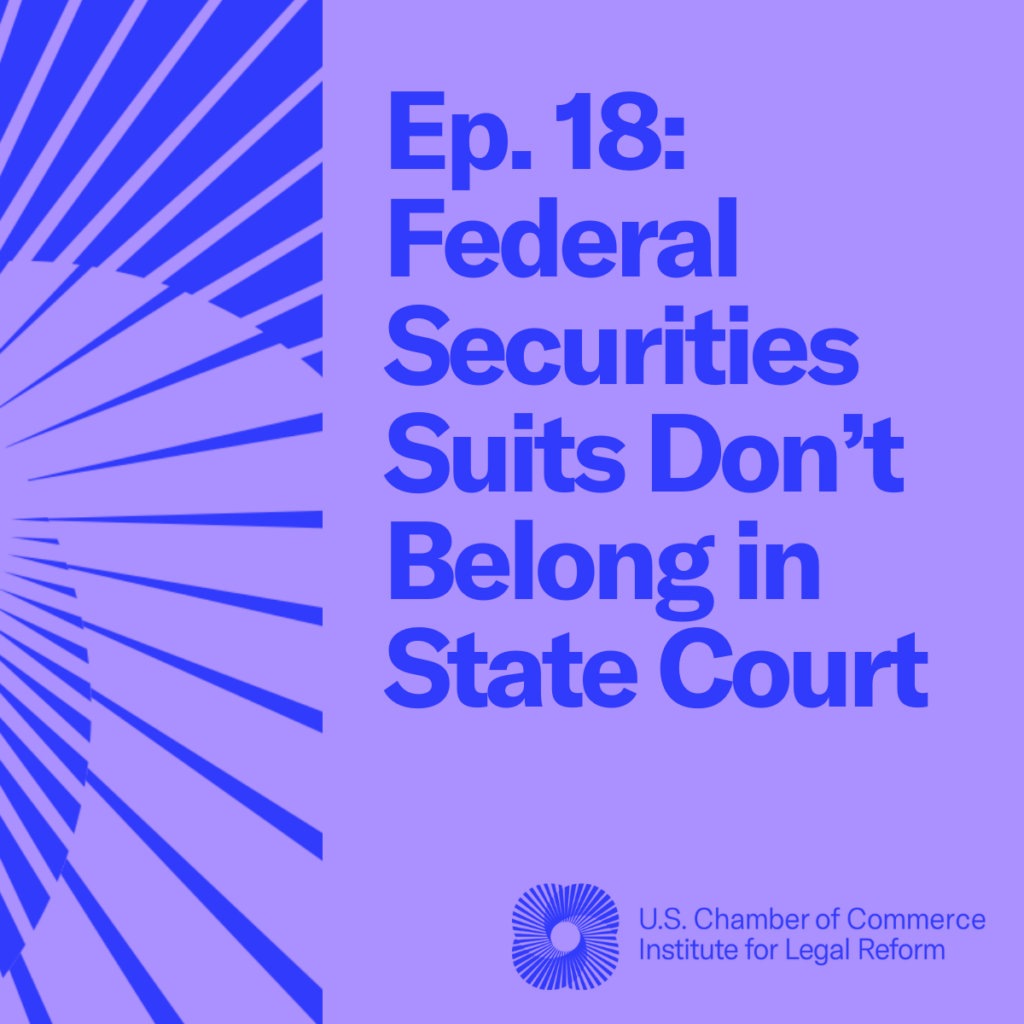As the world battles the COVID-19 pandemic, another crisis continues to rage in our nation’s courts. Securities class actions hit record highs for the third year in a row as plaintiffs’ lawyers responded to reforms in Delaware and a U.S. Supreme Court ruling by spreading their bets—filing often-duplicative lawsuits in state and federal courts designed to force companies to settle.
A new Institute for Legal Reform report highlights a distributing trend: securities class actions are on the rise. A study from Cornerstone Research reported that 428 securities class actions were filed in 2019, while NERA Economic Consulting reported 433 cases filed. Both studies show this is an increase from 420 cases in 2018 and more than double the average from 1997 to 2018.
Besides the increase of cases, what is happening with state versus federal court is another cause for concern. Delaware judges have leveled the playing field by cracking down on abusive mergers-and-acquisition suits. Plaintiffs’ lawyers responded by filing cases in federal court, where many judges permit settlements for “mootness fees” that serve only to enrich the attorneys.
At the same time, the Supreme Court’s Cyan v. Beaver County Employees Retirement Fund decision opened state courts to lawsuits filed under the federal Securities Act of 1933. There were 49 such class actions filed in state courts last year, four times the average number of cases between 2010 and 2018. Worse, is the fact that many of these state court cases also had claims in federal court, ensnaring companies in parallel litigation with correspondingly heavy costs.
Public companies already faced the near–certainty of being sued over any acquisition deal worth $100 million or more, according to past research. But plaintiffs’ lawyers continue to up the ante by suing for “event-driven” claims based on management’s alleged failures to predict adverse events such as data breaches or environmental disasters. Companies usually settle event-driven cases to avoid the expense and distraction of fighting in court.
The COVID-19 pandemic is ripe to become the next example of abusive securities litigation and multiple cases have already been filed. It is a global event that has affected the entire world, but no one could have predicted its speed, severity and impact. At a time when the nation’s economy is grappling with the pandemic, the last thing we need is plaintiffs’ lawyers extracting wealth and vitality from the public markets.
Along with the research, I hope you check out the ILR Briefly video on this topic, featuring Andrew Pincus of Mayer Brown and Kevin LaCroix from D&O Diary. This is the first of a series ILR will be producing over the coming weeks on a variety of important topics.



